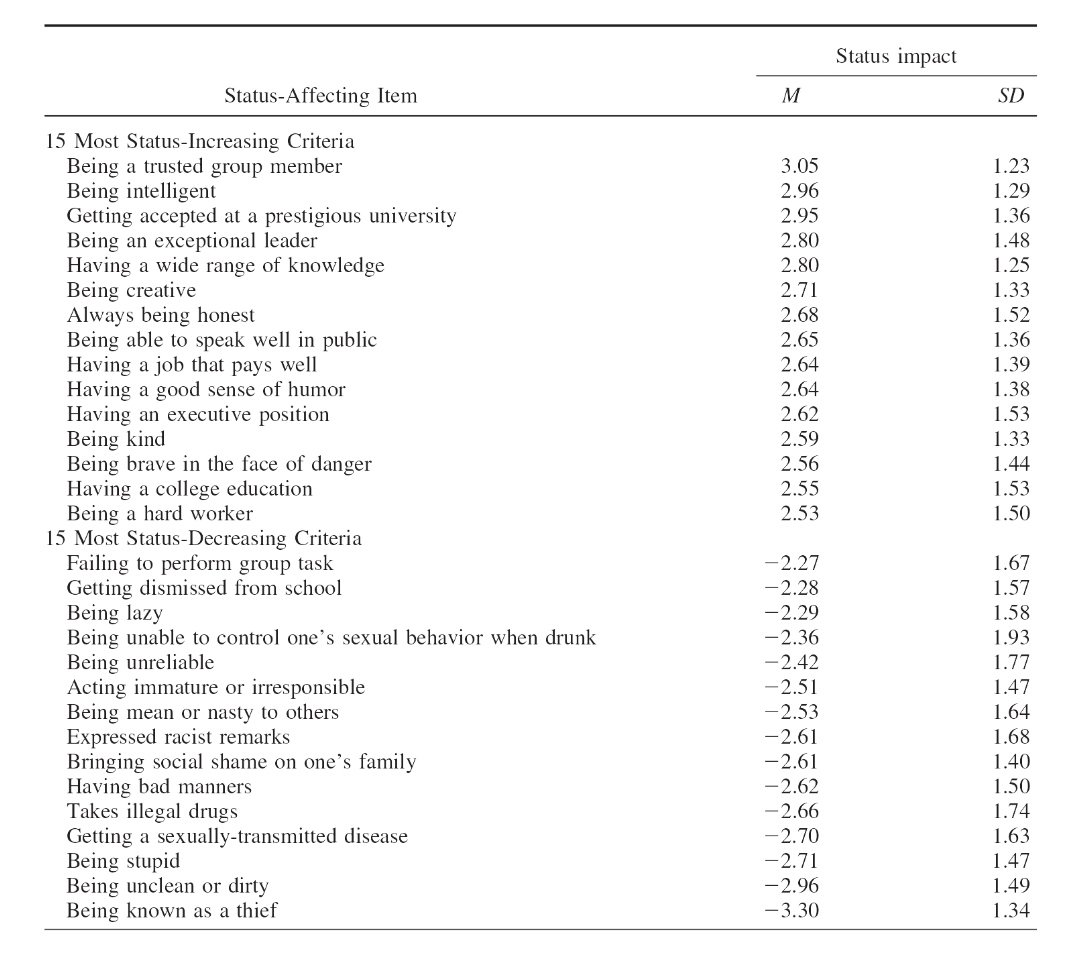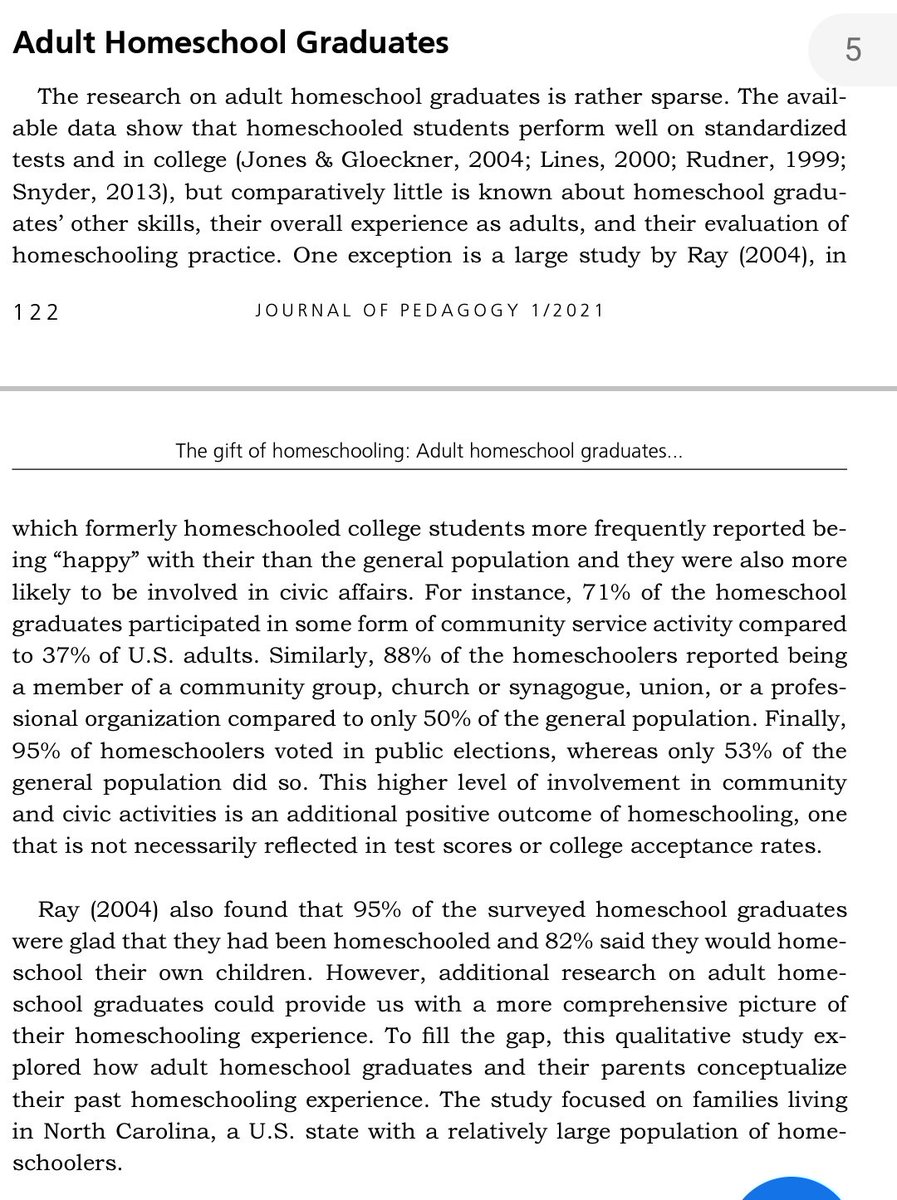
The biggest status-enhancing and status-decreasing behaviors.
Evolutionary psychology of status and status sex differences.
Cross-cultural findings across 14 nations. 🧵
Evolutionary psychology of status and status sex differences.
Cross-cultural findings across 14 nations. 🧵

Previous chart are combined items for men and women, the highs and lows out of 240 items.
Sex differences in status-enhancing behavior are remarkably small. Basically what enhances status for men also seems to enhance status for women.

Sex differences in status-enhancing behavior are remarkably small. Basically what enhances status for men also seems to enhance status for women.


If you go back to the first chart, it's basically a list of prosocial behavior for what is status enhancing and antisocial behavior for what is status diminishing.
"In summary, many status criteria are not sex-differentiated and appear to have similar effects across nations sampled in our study, suggesting possible universality."
Here are the larger sex differences that occurred in the exploratory analysis. Note that most of these are still small and share the same direction: what increases the status of a man also increases a woman's status. 

An exception: having a younger mate was associated with higher male status, while having a younger mate was associated with lower status for women.
A few more:
Having a higher status mate increases women's status.
Women's status is more damaged by having a poor mate.
Being a virgin lowers male status, but is beneficial to female status.
Sex before marriage lowers a woman's status; no effect on men.
Having a higher status mate increases women's status.
Women's status is more damaged by having a poor mate.
Being a virgin lowers male status, but is beneficial to female status.
Sex before marriage lowers a woman's status; no effect on men.

At d = -.78 and .81, some of these previous items have what are conventionally considered to be large effects by the way.
Drug use harms men's status, but less than it harms women's status.
Being able to drink more alcohol is a slight status boost for men, but harms women's status.
Being able to drink more alcohol is a slight status boost for men, but harms women's status.

"Acting masculine" and "acting feminine" were the largest sex differentiated status cues for men and women.
Masc men = high status / fem men = low status
Fem women = high status / masc women = low status
Masc men = high status / fem men = low status
Fem women = high status / masc women = low status

"They [acting masculine and feminine] appear to have profound status consequences, and because they show the largest sex-differentiated status consequences in the entire 14-nation study."
Important for men and women:
"Being healthy, having strong kin alliances, and embodying characteristics generally valuable across relationship domains—such as trustworthiness, willingness to share resources with others, and having a wide range of knowledge."
"Being healthy, having strong kin alliances, and embodying characteristics generally valuable across relationship domains—such as trustworthiness, willingness to share resources with others, and having a wide range of knowledge."
Failing to retaliate to insults lowers male status. Consistent with Nisbett's observations of a violent honor culture within male groups. 

There weren't sex differences in some of the major expected status signals. Seems to have surprised Buss et al in the results.
Basically all of the resource acquisition abilities or traits.
Basically all of the resource acquisition abilities or traits.

"After all, any person who could reliably access resources would be valuable across many domains—regardless of their sex. Considering these findings, this hypothesis should be revised."
"We are not denying that culture can either amplify or diminish the magnitude of such sex differences...
... however, positing that these sex differences are rooted in evolutionary processes can explain the fact that such differences appear to be culturally universal."
... however, positing that these sex differences are rooted in evolutionary processes can explain the fact that such differences appear to be culturally universal."

Let's look at the initial chart again. The big status helpers and status hurters. As mentioned, basically lists of prosocial versus antisocial behavior. 

Education occurs twice in the top list. Both for having a prestigious school, as well as for having a college degree.
As I have said many times on here and in my videos, getting an education is one of the best things you can do to increase your status in Western culture.
As I have said many times on here and in my videos, getting an education is one of the best things you can do to increase your status in Western culture.
Note how many status cues are directly related to the collective or the group as well. Being an isolated loner sigma individualist doesn't seem to help.
Status comes down to your interactions with those around you.
Status comes down to your interactions with those around you.
Many of the status cues, both in the chart and in the results that I shared, are actually quite intuitive. They are things that we tend to know from experience that are associated with status. Making money, having a good job, being trusted, etc.
This makes sense, because when you think about it status is a group feature. An isolated man on an island has no status. Ultimately, it is other people in the society around you who determine what your status is.
Look at how big an effect "bad manners" had on status. Something you might think of as entirely inconsequential.
Reduction of 2.6 points on an 8 point scale.
How to immediately raise your status 25%:
Reduction of 2.6 points on an 8 point scale.
How to immediately raise your status 25%:

• • •
Missing some Tweet in this thread? You can try to
force a refresh


























